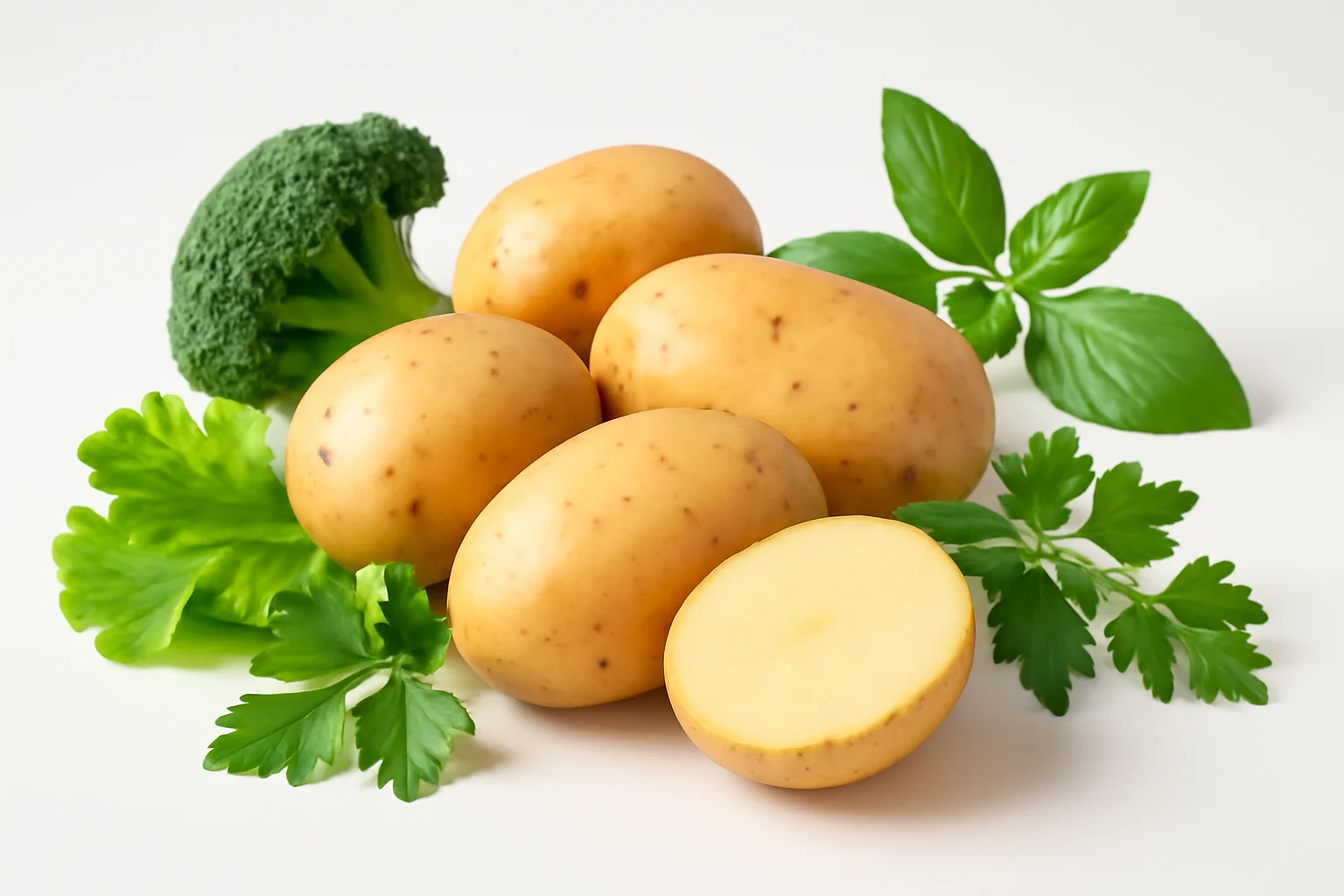
The Effects of Potatoes: Health Benefits and Nutritional Characteristics
The potato, one of the most widespread and beloved foods in the world, plays an important role in various cultures and cuisines. Over the millennia, the potato has become popular not only as a source of food but also for its nutritional characteristics and health benefits. Potatoes are rich in nutrients, vitamins, and minerals, making it no surprise that many consider them a staple of nutritious meals.
Potatoes can be prepared in many ways, whether boiled, baked, or mashed. Their flavor and texture are highly versatile, allowing them to easily complement a variety of dishes. Additionally, potatoes meet many dietary needs, as they are gluten-free and can be easily incorporated into vegetarian diets. People often underestimate the nutritional benefits of potatoes, yet when prepared and consumed properly, they can offer significant health advantages.
In this article, we will detail the beneficial effects of potatoes, their nutritious components, and why it is worth making this food a part of your daily diet.
The Nutritional Content of Potatoes
The nutritional content of potatoes is impressive, as they contain numerous important vitamins and minerals. One of the key nutrients is carbohydrates, which serve as the main energy source in potatoes. The glycemic index of potatoes is relatively low, meaning that the carbohydrates found in them gradually enter the bloodstream, providing long-lasting energy.
Potatoes are rich in vitamin C, which plays a key role in strengthening the immune system and maintaining skin health. Additionally, B vitamins, such as B6, support the functioning of the nervous system and are involved in cellular metabolism. Potatoes are also abundant in minerals, such as potassium, which aids cardiovascular health and helps regulate blood pressure.
Moreover, the fiber content of potatoes is significant, promoting digestion and contributing to gut health. Fiber helps maintain a feeling of fullness, making potatoes beneficial for those on a diet. Overall, potatoes are not only delicious but also a nutritious food with numerous health benefits.
The Health Benefits of Potatoes
Regular consumption of potatoes can have several health benefits. One of the most significant advantages is the reduction of the risk of cardiovascular diseases. The combination of potassium and fiber helps regulate blood pressure and contributes to maintaining heart health. Adequate potassium intake can lower the risk of stroke and improve cardiovascular functions.
Potatoes also contain antioxidants that help neutralize free radicals. These antioxidants, such as flavonoids and carotenoids, may contribute to reducing the risk of chronic diseases like cancer and heart disease. Therefore, regular potato consumption can promote long-term health.
We should not overlook the digestive benefits of potatoes either. The fiber they contain aids bowel movements, thus reducing the risk of constipation and other digestive issues. Maintaining the health of the digestive system can support not only physical well-being but also mental health, as the connection between gut flora and the brain is increasingly coming to the forefront.
Ways to Use Potatoes
Potatoes are an incredibly versatile vegetable that can be prepared in many ways. They can be boiled, baked, mashed, or fried, resulting in a delicious and nutritious dish in every case. The wide range of preparation methods allows potatoes to fit into almost any meal.
Boiled potatoes are one of the simplest and quickest ways to consume potatoes. When boiled, they retain a significant portion of their nutrient content and make an excellent side dish for meat dishes or salads. Fried potatoes are a favorite for many due to their crispy exterior and soft interior, especially when seasoned with spices.
Mashed potatoes are also popular, as their creamy texture makes them easy to eat. Mashed potatoes are not only excellent as a standalone dish but also pair well with various meat dishes. The possibilities for preparing potatoes are virtually endless, and creative chefs can develop numerous new recipes that highlight the natural flavor and nutritional value of potatoes.
The Role of Potatoes in Sustainable Nutrition
Potatoes are not only a nutritious food but also play an important role in sustainable nutrition. Potato cultivation has relatively low environmental impacts, and potatoes are grown in many parts of the world, making local consumption easier.
Potatoes are an economical food that many can afford, contributing to nutritious meals without imposing a significant financial burden. Buying local and seasonal potatoes supports local farmers and reduces transportation costs and carbon footprint.
The versatility of potatoes allows them to fit into various diets and meal plans. Whether it’s a vegetarian, vegan, or gluten-free diet, potatoes offer a delicious solution that is accessible to everyone. From a sustainable nutrition perspective, potatoes are not only nutritious but also an environmentally friendly choice.
Warning: This article does not constitute medical advice. In case of health issues, please always consult your doctor.

